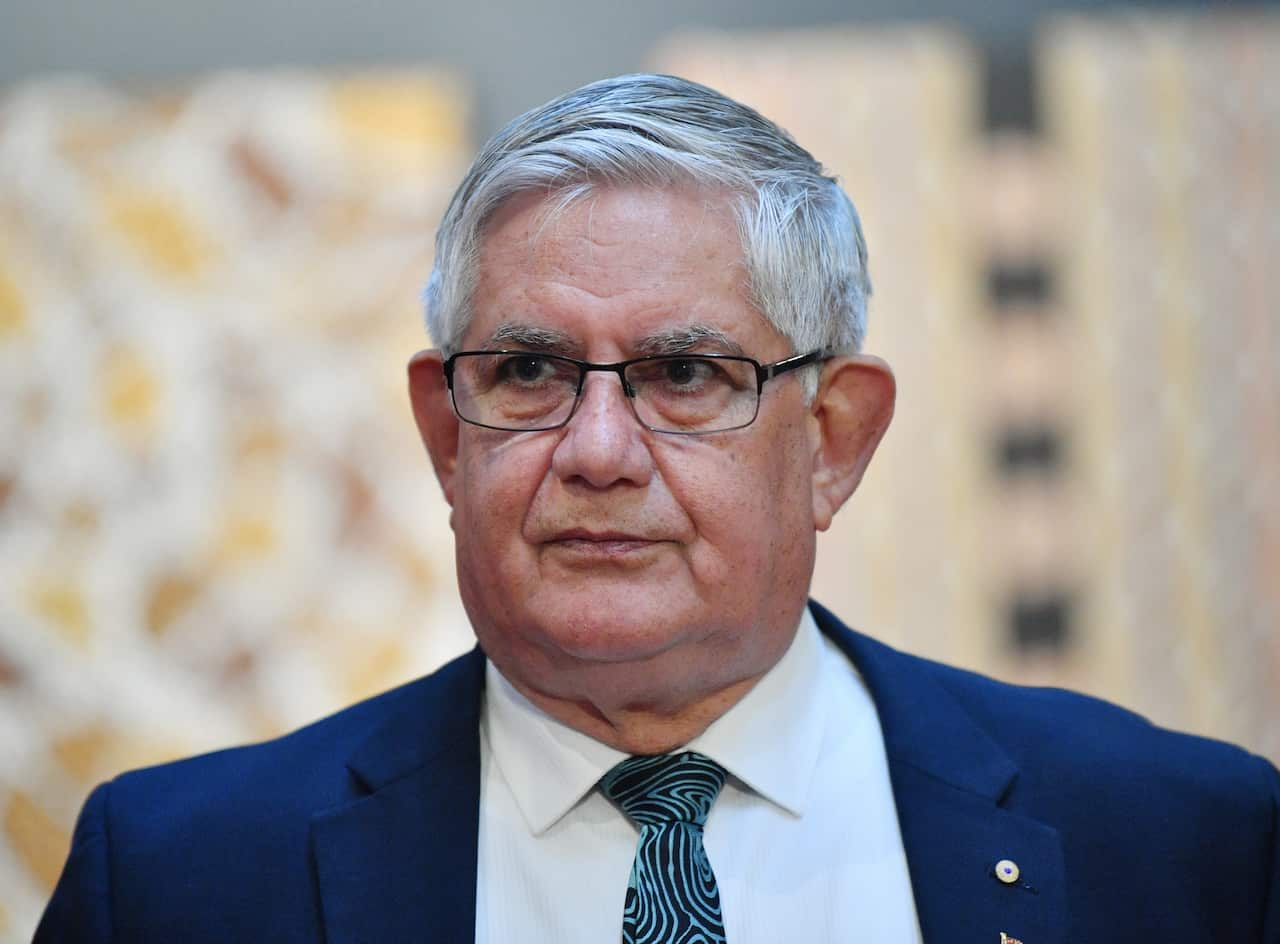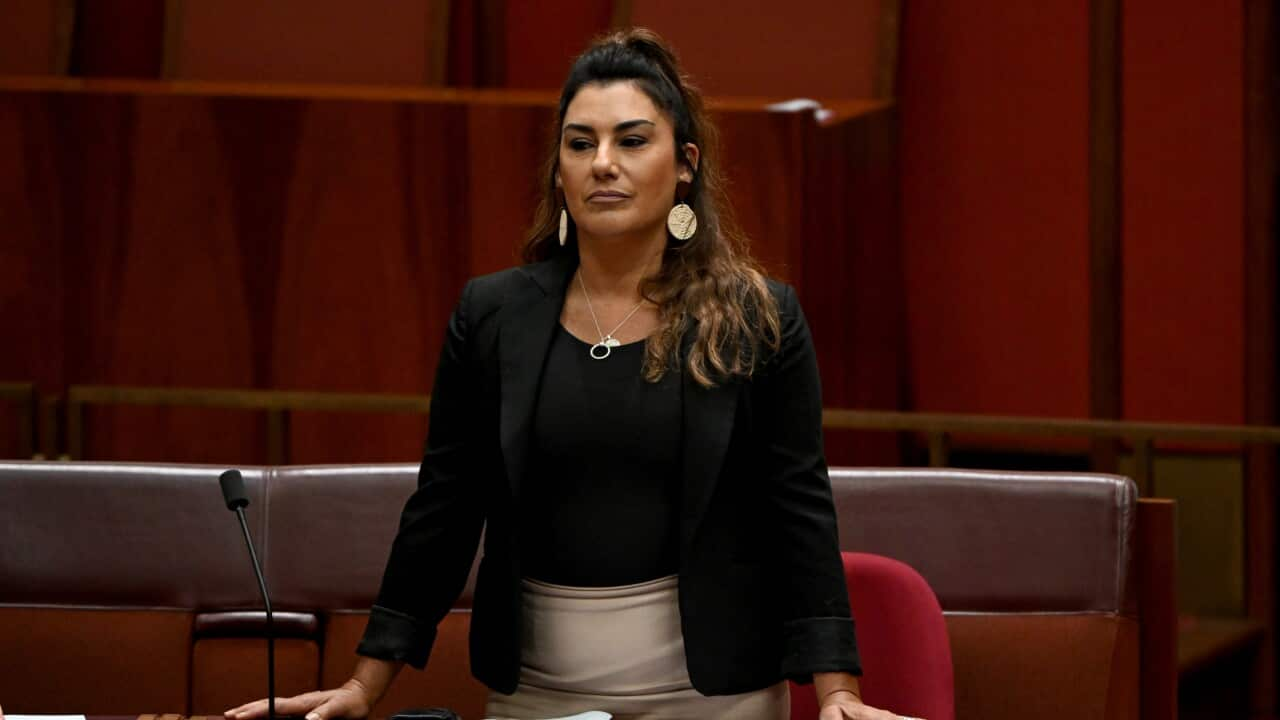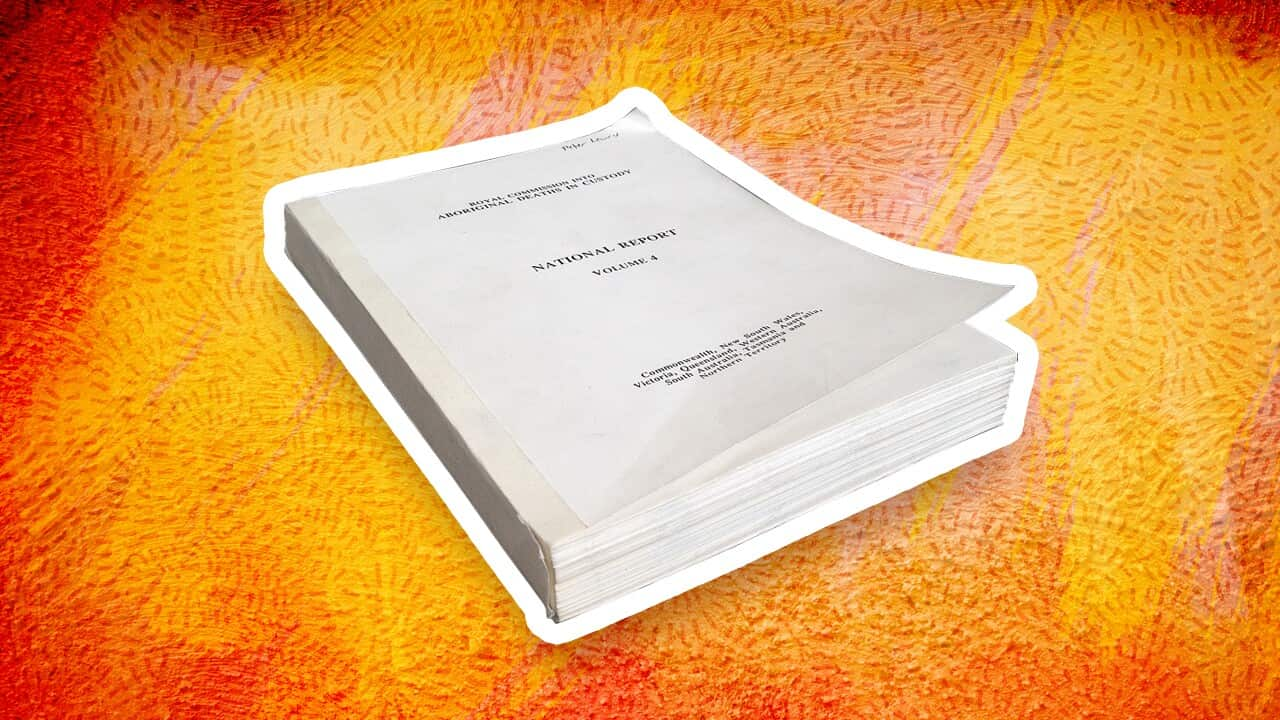KEY POINTS:
- Lidia Thorpe says she won't commit to the Voice until landmark report recommendations are implemented.
- The Bringing Them Home Report and royal commission into Aboriginal deaths in custody were released decades ago.
- Former minister for Indigenous Australians Ken Wyatt describes definition of Aboriginality questions as 'offensive'.
Independent senator Lidia Thorpe says she will "hold it right to the line" in not declaring a position on the First Nations Voice to Parliament, unless recommendations from two landmark reports into the disadvantages faced by Indigenous Australians are implemented.
The ongoing debate over the proposed body comes as the former minister for Indigenous Australians Ken Wyatt rebuked his ex-colleague for demanding a definition of Aboriginality for those seeking to sit on the Voice, describing the idea as "offensive".
Senator Thorpe cited two reports - and - as areas the federal government had failed to effectively respond to for decades.
She told NITV that "I can't say that I can support anything" as successive governments continued to "tinker around the edges".
"Until we see action on saving people's lives, I will have no position [on the Voice]," she said on Monday.

Independent senator Lidia Thorpe says she will "continue to push" the government over the reports. Source: AAP / Lukas Coch / AAP
"I'll hold it right to the line until I see action."
The damning 1991 royal commission . It concluded "there appeared to be little appreciation of, and less dedication to, the duty of care owed by custodial authorities and their officers to persons in custody", with Indigenous Australians far more likely to end up in jail.
The Bringing Them Home Report found at least 10 per cent of Indigenous Australians were forcibly removed from their families and communities before 1970, something it found was a "gross violation of their human rights" and an act of genocide.
Senator Thorpe has repeatedly called for a Treaty with First Nations peoples before a Voice, , though the Greens in February did decide to back the referendum.
"We can have a Treaty for the 21st century, that gives us real power and allows real, genuine self-determination of all of our clans and nations to decide what is best for them," she said.
"We have our own structures that are thousands and thousands of generations old. Why are we continuing to come up with all these new advisory bodies that have no power?
"We're sick of the handpicked people that government chooses."
Senator Thorpe, a Djab Wurrung Gunnai Gunditjmara woman, quit the Greens in early February to "grow and amplify the Black sovereign movement".
'Taken aback'
Former minister for Indigenous Australians Ken Wyatt has rebuked his ex-colleague for demanding a definition of Aboriginality for those seeking to sit on the Voice, describing the idea as "offensive".

Former minister for Indigenous Australians Ken Wyatt has described the concept of an Aboriginality test for people sitting on the Voice as "offensive". Source: AAP / AAP
The Liberal Party is yet to settle on a position, instead releasing 15 questions on how the body would function, which it claimed needed to be answered.
Part of that is a demand by Coalition spokesperson for Indigenous Australians e.
"This whole issue of talking about the degree of Aboriginality perplexes me, because we never ask any other cultural group," Mr Wyatt said.
"I'm always taken aback by people who [ask]: what percentage are you? Why [are] we ... the only cultural group [that has] to justify that in a multicultural nation like ours? I just find it offensive."
The government has historically used a definition . That definition states Aboriginal or Torres Strait Islander heritage is "something that is personal" to an individual.
But where confirmation is required - to receive an Indigenous study grant, for example - it uses three criteria: the individual is of Aboriginal or Torres Strait Islander descent, identifies as an Aboriginal or Torres Strait Islander person, and is accepted as such by the community in which they live or formerly lived.
In office, Mr Wyatt supported legislating the Voice, insisting on Monday it was something that "I could win within the construct of government at the time".
But he stressed former Liberal leaders Tony Abbott, Malcolm Turnbull and Scott Morrison had all supported constitutional recognition for Indigenous Australians.
"I regret that COVID got in the way, because I think we could have done a lot more and we could have pushed the agenda much harder," he said.
"But given the priorities, I think that detracted from some of the incredible opportunities that we had, as a coalition government, of taking this forward."











